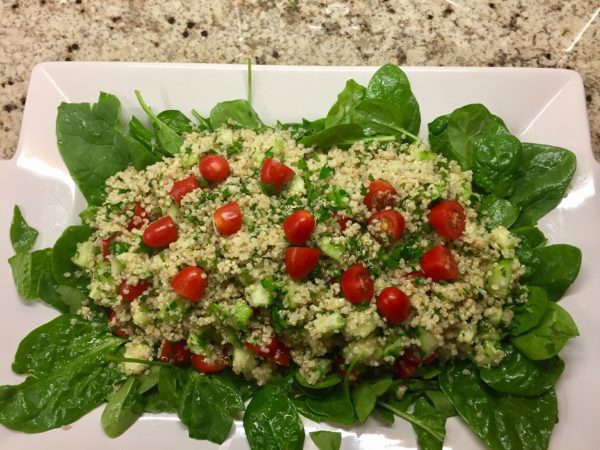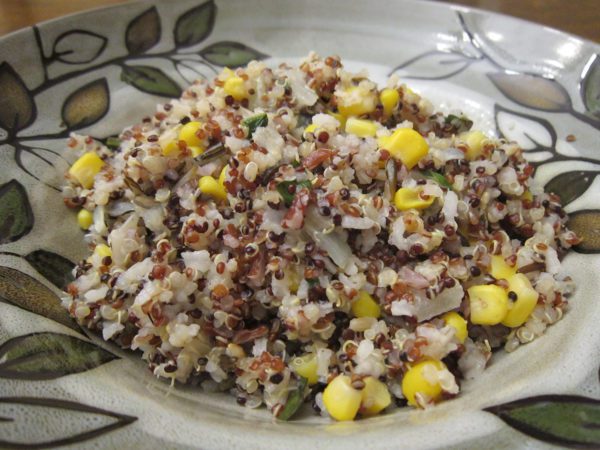Change Your Carbs to Boost Mental Health
Did you know carbohydrates are found predominantly in plant foods?
- leafy greens
- vegetables
- tubers (root vegetables)
- legumes
- fruits
- grains
These are the carbs humans ate for tens of thousands of years.
Refined carbs – pasta, bread, processed foods, even ground grains (flour) – are a relatively recent food development.
Consuming refined carbohydrates is linked to inflammation. Chronic inflammation can lead to physical and mental ill-health.
[su_expanding_quote_book alignment=”right” source_author=”Leslie Korn, MD” source_title=”Nutritional Essentials for Mental Health” full_quote=”Chronic low-level inflammation contributes to depression and cognitive decline.” ” short_quote=”Chronic low-level inflammation contributes to depression “]By choosing carbohydrates from nature instead of refined human-made carbohydrates, you will
- reduce inflammation
- give your body and your brain more essential micronutrients
- consume fewer calories
Combine those plant carbs with protein and good fats from nature for stable energy, help your body absorb vital minerals and vitamins, and produce neurotransmitters- chemical messengers in your body. They enable your brain to provide a variety of functions.
Additional benefits:
Stable blood sugar
Blood sugar regulation is your body’s priority for stable energy and for optimal brain function.
Refined carbs cause blood sugar spikes and crashes. This can deplete important neurotransmitters (chemical messengers that carry signals between neuron). Erratic blood sugar can also lead to degeneration of the brain.
Fiber
These foods are rich in fiber. Fiber slows down glucose absorption and controls the rate of digestion. This helps stabilize your blood sugar.
Your microbiome (the trillions of bacteria in your gastrointestinal tract) influences your mental health. Fiber-rich plant foods feeds the good gut bacteria. A healthy gut is linked to a healthy brain.
Rainbow phytochemicals
Phytochemicals are powerful anti-inflammatory, antioxidant, and DNA-enhancing compounds in plants. Every color represents a different family of plant compounds.
Your brain consumes twenty percent of everything you eat. By choosing plant foods as your carbs, you are getting essential micronutrients to produce and support each element of your brain, especially critical neurotransmitters. You will be better able to prevent and manage mood and anxiety disorders.
What to Do?
Instead of worrying about carbohydrates calories, aim for greens and rainbow plant foods to be make up the main part of your meals. There are so many ways to eat the rainbow¡
Have fun exploring and find the way that works best for you.
Here are a some delicious, nutritious options:

Grain Pilafs – mix different grains like brown rice and quinoa, add herbs and veggies, and/or chopped nuts

4 Delicious, Nutritious Potato Salads
Roasted sheet pan veggies like Roasted Red Cabbage and Brussels Sprouts

